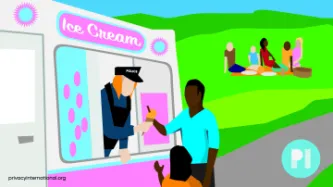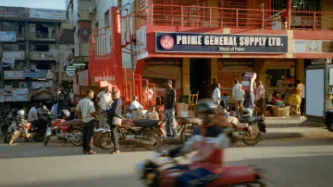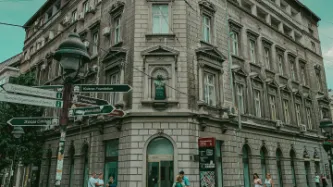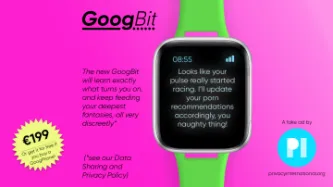Search
Content type: Examples
Russian authorities are considering introducing an app that migrant workers will be required to download when they enter the country. Leaked details indicate that the app would contain detailed biometric data, health status, police records, and a “social trustworthiness” rating. It’s unclear whether the app would access other data such as geolocation and user content. Other aspects of surveillance are also expanding in Russia, such as using Moscow’s surveillance camera system to track those…
Content type: Examples
The findings of Freedom from Torture’s report, based on reviews of transcripts of asylum interviews carried out by the Home Office in 2017 or 2018 and a series of focus groups and interviews involving 25 torture survivors who had attended asylum interviews, shows they were often prevented from giving a full account of their experiences or denied the opportunity to explain their evidence.
The report states that some Home Office case workers were found to employ “poor questioning technique” and…
Content type: Examples
Up to 30 charities and organisations have written to home secretary Priti Patel calling for a number of amendments on Tuesday - a year exactly until the scheme ends.
Under current arrangements, EU citizens have been told to apply by June if they wish to continue living and working in Britain.The letter said: “We are concerned that the government has not taken appropriate steps or made the adequate adjustments to the EUSS necessary to protect EU citizens and family members from Covid-19. We…
Content type: Case Study
Facial recognition technology (FRT) is fairly present in our daily lives, as an authentication method to unlock phones for example. Despite having useful applications, FRT can also be just another technology used by those in power to undermine our democracies and carry out mass surveillance. The biometric data collected by FRT can be as uniquely identifying as a fingerprint or DNA. The use of this technology by third parties, specially without your consent, violates your right to privacy.
The…
Content type: Case Study
The Ugandan government has a running contract with the Chinese tech giant, Huawei, to supply and install CCTV cameras along major highways within the capital, Kampala, and other cities.
While details of the contract remain concealed from the public, the Uganda Police Force (UPF) released a statement, simply confirming its existing business partnership for telecommunication and surveillance hardware, and software between the security force and Huawei. However, it is not clear whether the…
Content type: Case Study
Well into the 21st century, Serbia still does not have a strong privacy culture, which has been left in the shadows of past regimes and widespread surveillance. Even today, direct police and security agencies’ access to communications metadata stored by mobile and internet operators makes mass surveillance possible.
However, a new threat to human rights and freedoms in Serbia has emerged. In early 2019, the Minister of Interior and the Police Director announced that Belgrade will receive “a…
Content type: Examples
Although the Home Office does not record ethnicity data for detainees, analysis of nationalities of those recently held within the immigration detention estate found that citizens from countries with predominantly black and brown populations are held for substantially longer periods than those from predominantly white countries.
Around a third – approximately a 1,000 – being held in immigration detention centres were freed at the height of the coronavirus pandemic to try and stop the spread of…
Content type: Examples
Immigration rules that have left 1 million migrant workers in the UK at risk of destitution because they cannot claim universal credit should be suspended on public health grounds during the pandemic, a cross-party group of MPs has recommended.
The work and pensions select committee said the no recourse to public funds (NRPF) rule – which hit the headlines recently when Boris Johnson appeared not to be aware of its existence – meant many foreign nationals faced a choice of staying at home in…
Content type: Long Read
Monday, 16 June 2025
It’s 7:33 am. Lila’s GoogBit watch vibrates. “You got 6 hours and 57 minutes of sleep last night, including 2 hours and 12 minutes of deep sleep”, the watch reads. “In total, you tossed and turned for 15 minutes only”. Taking into account Lila’s online browsing activity, her sleep pattern, the recent disruptions in some of her other biorhythms, as well as her daily schedule, GoogBit watch has calculated the very best minute to wake her up.
Content type: Examples
Excluded groups such as sex workers and asylum seekers are being left behind in the UK’s COVID-19 response as control measures amplify existing health inequalities and put life-saving advice and care further out of reach.
The closure of services and some GP registrations, a lack of access to technology, distrust and fear of authorities, unsuitable or insecure accommodation, and reduced income are among the many challenges facing people in vulnerable circumstances in England.
Doctors of…
Content type: Examples
South America has become the scene of one of the worst humanitarian crises in recent times. The crisis involving migrants and refugees from Venezuela involves children, adolescents, and young people who have left their country of origin to settle in surrounding countries, either due to political or economic reasons, sometimes both.
This study delves into the harsh reality of children, adolescents and young migrants and refugees from Venezuela who are caught up in the economic and political…
Content type: Long Read
Introduction
In August 2019, when Facebook announced a few new features for advertisers such as ads in search, PI decided to take an in-depth look at what features the company offers its users when it comes to understanding its advertising practices. One of these features, which caught our attention is Facebook Ads Preference, a tool that among other things, lists businesses/advertisers that have uploaded your personal data to target you with (or exclude you from) ads on the platform.
Content type: Examples
A mix of city data and reports from building superintendents and porters provides evidence on how New York City’s residents’ behaviour has changed during the lockdown. Among the findings so far: residents are recycling 27% more, particularly clear glass, and total garbage collected has dropped, especially in wealthy areas, where some residents left for country homes, but risen in the poorest areas. Scholars of consumption habits hope to learn more about how shutdowns affect people’s use of…
Content type: Examples
The AI firm Faculty, which worked on the Vote Leave campaign, was given a £400,000 UK government contract to analyse social media data, utility bills, and credit ratings, as well as government data, to help in the fight against the coronavirus. This is at least the ninth contract awarded to Faculty since 2018, for a total of at least £1.6 million. No other firm was asked to bid on the contract, as normal public bodies’ requirements for competitive procurement have been waived in the interests…
Content type: Examples
The Delaware County of New Castle is participating in a pro-bono programme run by the Cambridge, Massachusetts start-up Biobot Analytics, which analyses sewage for the coronavirus in order to estimate the number of people infected in a particular area, hoping to use the results to make better health decisions. Wastewater epidemiology has been used in the past to combat polio. Also joining the Biobot programme are wastewater treatment plants in or near Denver, Honolulu, Indianapolis, Florida’s…
Content type: Examples
Between March 29 and May 28, residents of Nashville, Tennessee submitted 3,748 reports of potential violations of the Safe at Home order, including locations such as restaurants, parks, churches, and funeral homes, and violations such as promoting live music while it was prohibited, or failing to wear a mask correctly. By May 11, the Metro Public Health Department had yet to issue a single citation, instead viewing complaints as an opportunity to educate businesses and individuals about how to…
Content type: Examples
Concerns that contact tracing could expand to purposes beyond public health gained some weight when the Minnesota Department of Public Safety Commissioner John Harrington told press that law enforcement was using “contact tracing” to investigate protesters arrested after the murder of George Floyd. Minnesota public health authorities found that Harrington actually meant they were engaging in the normal process of law enforcement investigations, and not, as he had implied, using data from Covid-…
Content type: Examples
Immunity passports, under consideration in a number of countries, may violate US disability law, enable discrimination, and create a two-tiered exclusionary society. They are not really comparable to vaccination cards for diseases such as yellow fever or meningitis, which are required for entry into a number of countries or universities, because in those cases vaccines are available. Antibody testing for COVID-19, however, has many uncertainties, as the extent to which antibodies confer…
Content type: Examples
After problems with its TraceTogether contact tracing app, Singapore is planning a comprehensive contact tracing system in which it will distribute to all its 5.7 million residents a wearable device that will identify people who have interacted with people carrying the coronavirus. The devices can be worn on a lanyard or carried in a handbag. Critics are concerned that it will be difficult to tell what the device is doing or what information it sends to back-end servers.
Source: https://mobile…
Content type: Examples
The lack of data protection laws and the absence of a privacy commission are contributing factors to Pakistan’s failure to investigate or remedy security flaws in the country’s recently-launched COVID-19 tracking technology, which partially depends on a system originally developed to combat terrorism. While there are no reported cases of harassment or targeting based on the leak online of the personal details of thousands of COVID-19 volunteers, the lack of response fails to boost citizens’…
Content type: Examples
While acknowledging the WHO’s advice that retaining antibodies to the coronavirus after recovering from COVID-19 is not yet scientifically confirmed to confer immunity, the International Air Transport Association believes that immunity passports could be important in helping air travel resume. Documented passengers could bypass many of the protective measures currently planned, which include temperature screening, physical distancing, modified boarding processes, and wearing masks.
…
Content type: Examples
Italy has launched Immuni, one of the first contact tracing apps based on the Apple-Google API. The app is opt-in, and includes an explanation of the privacy and security measures in its setup. The app collects anonymously bluetooth tokens that are automatically randomised, but does not collect GPS or location data and performs all processing on the device.
Source: https://9to5mac.com/2020/06/01/italy-apple-exposure-notification-api-app/
Writer: Michael Potuck
Publication: 9 to 5 Mac
Content type: Examples
Serbian MPs voted 155-0, with one not voting and one abstention, to lift the state of emergency that was declared on March 15 and repeal 11 emergency ordinances covering work, tax, debt, and criminal justice on the basis that the conditions for lifting it have been met. The change lifts curfews and allows businesses to reopen, but sanitary and medical measures to control the coronavirus pandemic remain in force, such as the requirement to maintain social distancing in shopping malls, cafes, and…
Content type: Examples
The Slovak Constitutional Court declared unconstitutional parts of the newly amended telecommunication law that permitted state authorities to access telcommunications data for the purposes of contact tracing. The parliament approved the legislation in March, but the court ruled that the need for speedy solutions during the pandemic should not unintentionally erode the rule of law. The court called the provisions it struck down insufficiently clear, and lacking in safeguards against misuse. The…
Content type: Examples
As part of their preparations to ease the lockdown, French authorities have added AI tools into the CCTV cameras in the Paris Metro to detect the number of passengers who are wearing face masks. The system is also being used in outdoor markets and buses in Cannes. Although it is mandatory to wear a mask on public transport in France, the software won't be used to identify, rebuke, or fine people, and the system has not proved as contentious as contact tracing. The data protection regulator CNIL…
Content type: Examples
Taking advantage of the pandemic to close US borders, the Trump administration is also spreading coronavirus infection by deporting detainees to receiving countries such as Guatemala, where 20% of infections are deportees. Guatemala has only two hospitals and a scattering of smaller regional medical facilities to serve its population of 18 million people. As of April 2020, 5,000 Guatemalans were being held in detention in the US, and every week the Department of Homeland Security was sending…
Content type: Examples
The controversial Israeli spyware company NSO Group's US arm, Westbridge, has been trying to pitch its phone hacking software to US law enforcement agencies such as the San Diego Police Department, particularly a tool called "Phantom", which the complany claims can overcome encryption, track geolocation, withstand a factory reset, monitor apps and voice and VOIP calls, and collect passwords.
Writer: Joseph Cox
Publication: Vice
Content type: Examples
Cameras repurposed as "fever-detecting" aren't designed for and are not very good at detecting infections, but businesses, airlines, major employers, and public officials are nonetheless reacting to the coronavirus pandemic by spending large sums to buy them without understanding their limitations. The systems can detect elevated skin temperatures, but aren't precise enough to be able to identify the cause. In addition, many people who develop COVID-19 don't have fevers. The scanners have not…




